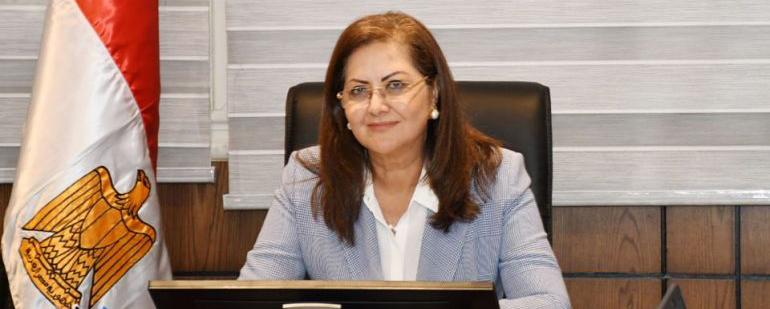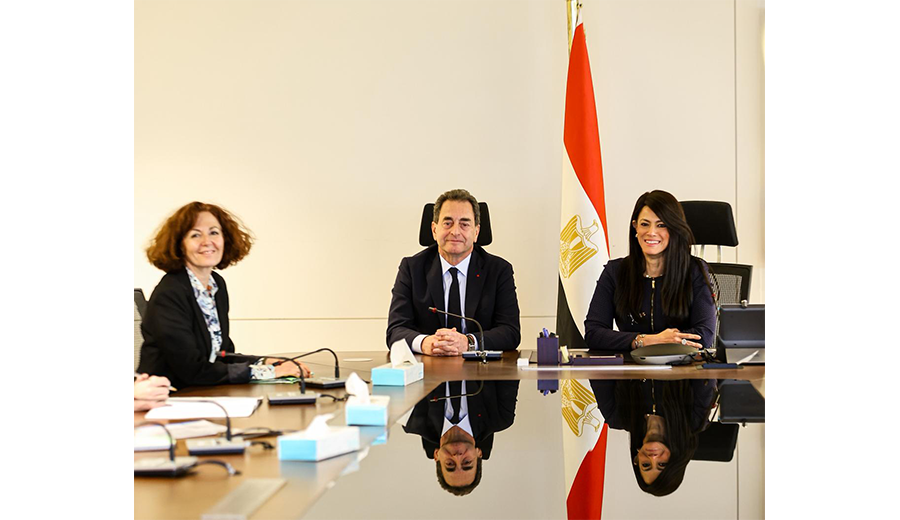Planning Ministry releases the 4th issue of the “Citizen Follow-up in the Governorates" report

17 April 2021
The Ministry of Planning and Economic Development issued the fourth issue of the “Citizen Follow-up in the Governorates” report during (18 / 2019- 19/2020), which includes an inventory of the projects that were fully completed during the same period, and linking them to the sustainable development goals.
In this context, Dr. Hala El-Said, Minister of Planning and Economic Development indicated that the fourth issue of the “Citizen Follow-up in the Governorates” report included an inventory of the projects that were completed in the Minya Governorate during the years (18 / 2019- 19/2020).
These projects are 737 projects, at a total investment cost of EGP 4.8 billion, in 7 sectors (education, health, housing, electricity, transportation, irrigation, local development).
Concerning the state’s efforts to achieve the second goal of the sustainable development goals: “Eradicating hunger, providing food security and promoting sustainable agriculture,” the report indicated that implementation of 24 projects in the water resources and irrigation sector had been completed, with a total investment cost of EGP 196 million. It is about treating collapses on the right side of the Ibrahimiyyah canal, replacing and renewing the covered drainage networks in the Kabkab al-Thaniyah area, and the process of dredging the dams of Bahr Youssef (Al-Obaid Qanatr), to deliver water to the end of the canals and developing the lanes of the first Shari’i area in Samalout Center.
Regarding the third goal: "Ensuring a healthy life and promoting well-being for all at all ages", 16 projects were completed for EGP 567 million, which resulted in the completion of the establishment of Samalout Central Hospital, Mallawi Specialized Hospital, Kidney and Urology Hospital at Minya University, and the Child Care Center at the Matay center, and the establishment and development of 7 health units, including (the Deabs facility, the Nasr facility, and Safai) in Abu Qurqas, and the establishment of 5 family health units, include (Halfa facility, Sharqiya Silat, Shusha).
The comprehensive survey of local community characteristics, issued by the Central Agency for Public Mobilization and Statistics (CAPMAS), indicates an increase in the percentage of villages with a health unit from 75.8% in 2015 to 79.8% in 2020.
As for the fourth goal of the sustainable development goals: “Ensure a quality education that is equitable and inclusive and promotes learning opportunities throughout life for all.” 93 projects in the pre-university education sector, for EGP 474 million, were completed, resulting in the creation, replacement, and expansion of 1,352 classrooms.
The percentage of villages with a governmental primary and preparatory school increased from 88.1% in 2015 to 97% in 2020, and the percentage of villages with a governmental preparatory school increased from 86.1% to 90.6% in 2020.
Within the framework of achieving the sixth goal: “Ensure the availability of drinking water and sanitation for all and manage it sustainably”, 18 projects in the drinking water and sanitation sector have been implemented, at a cost of about 2 billion pounds, resulting in the completion of the construction of the Abu Qurqas water station (TAQA 102). / 204,000 m3 / day), the Ferjani water station in Bani Mazar district, the Nazlat al-Badraman treatment plant (capacity 6000 m3 / day), the Deir al-Adra sanitation station (capacity 7.500 m3 / day), and the al-Barjaya treatment plant (capacity 6000 m3 / day). / Day), and a sanitation station in Minya.
Regarding the progress made in achieving the seventh goal: “Ensuring universal access to modern, regular and sustainable energy services at an affordable cost,” the report indicated the completion of the implementation of 13 projects in the electricity and renewable energy sector, for EGP 117 million, which resulted in the construction of the transformer station in Mazar East. (Capacity 80 MVA), the line built by Mazar East / National Cement with a length of 20 km, and the capacity of Samalout transformer stations increased by about 30 MVA.
According to the report of the Ministry of Planning and Economic Development, 213 projects within the local development programs (electricity and lighting) were completed, for EGP 124 million, resulting in 34 km of road lighting, 4,150 lighting poles, and 61 electrical transformers installed.
Concerning the ninth goal of the sustainable development goals: “Establishing resilient infrastructure, stimulating inclusive sustainable industrialization and encouraging innovation,” the report indicated the completion of the paving of the Monastery of Samuel Road and the Western Desert Road with a length of 22.5 km, in addition to the completion of the implementation of 215 A project within the local development programs (paving roads, bridges, and tunnels), for EGP 347 million, which resulted in the paving of roads and streets of a length of 161 km, and the construction and development of 23 bridges in 6 centers (Minya, Maghagha, Matay, Abu Qurqas, Mallawi, Bani Mazar).
In the same context, and concerning the eleventh goal of "making cities and human settlements inclusive, safe, resilient and sustainable", 96 projects within the local development programs (security, traffic and firefighting, and supporting the needs of local units) were completed, for 184 million pounds, which resulted in Establishing the Saft Al-Khammar crossing point in the Minya district, establishing and developing 24 local units, and providing civil protection and traffic equipment in all the governorate centers.Regarding the thirteenth goal of the sustainable development goals: “Taking urgent measures to combat climate change and its impacts”, 37 projects within the local development programs (improving the environment) have been implemented, for EGP 50 million.









